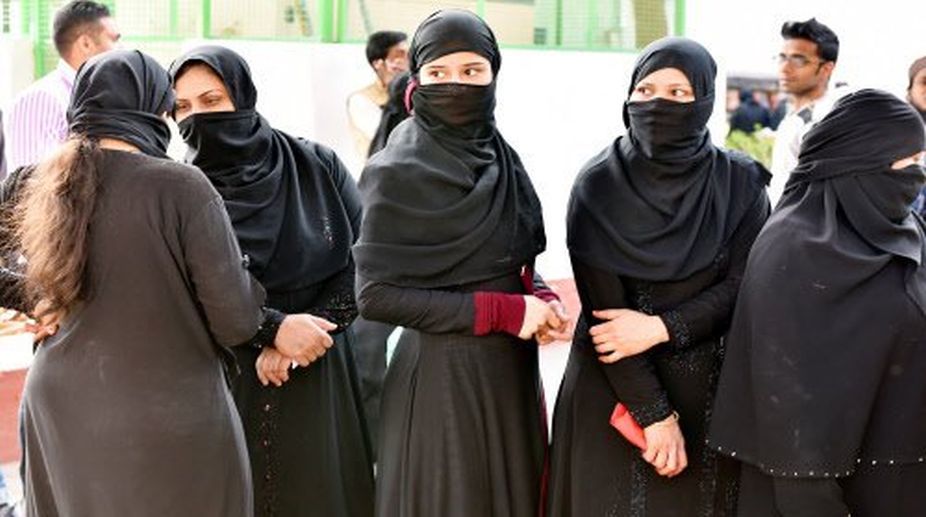Hyderabad: While the recently enacted Triple Talaq bill has unleashed a torrent of apprehensions among the Muslims in India, several groups within the boundaries of religion believe that it would not hurt the community members in any way. They say that a large number within its fold trust that pronouncing divorce multiple times in one sitting is against the basic tenets of Islamic law.
A spokesperson of Jamiat Ahle Hadees said on condition of anonymity that there is no point in discussing the issue since triple talaq in one sitting not permissible in Islam. To substantiate his statement he said, “In Sahih Muslim Volume Two, Hadees number 451 clearly mentions that utterance of ‘Talaq, Talaq and Talaq’ is not valid. So there is no point of discussion for us here.”
Syed Shah Hameed Hussian Shuttari, President All India Sunni Ulema Board, explaining the procedure of giving talaq said, “If a Muslim man has to give talaq to his wife he has to do it according to well-laid principles of Islam. He has to pronounce talaq three sittings, each one with a gap of one month. The Islamic jurisprudence takes into consideration the factor of possible reconciliation between the husband and wife. That is the reason why talaq is incomplete if it is given in one sitting. There has to be a gap of one month between each pronouncement of divorce,” he said.
Fatima Naaz, a resident of Mehendipatnam, is in support of the Act. She said that there are numerous instances where the husband is of no use to the family as he has failed to carry out his responsibilities. In other cases, he must be committing excesses against his wife. “In such circumstances what difference would it make even if he is sent to jail,” she said justifying the new law.
Sayeeda Shehzadi, a BJP member, has said it differently. “There are people who give talaq on WhatsApp or over the phone. That is not permissible. Also, if divorce is pronounced in a state of anger over trivial matters it is against Islam. But since many people have been misusing this factor the Triple Talaq Act would end such practices,” she explained.
The politician and social worker also said that 27 countries including Pakistan have banned the practice of instant triple talaq. So what is wrong if the Indian government adopts the same system, she asks?
Tahseen Fatima, the head of Al Huda Institute Hyderabad, echoes the sentiments expressed by Shuttari. “When there is no system of pronouncing talaq three times in one sitting. So why are we discussing it? The divorce given in such a manner stands invalid,” she said.
President of Mohammedia Jamat Khana, of the Bohra community, Hakeemuddin said, “We prefer to solve the differences between husband and wife through counselling. If things do not work even then we start the procedure for the dissolution of the marriage which is a considerable long procedure.”
Ayesha Sultana, a member of the Bohara community who was present while siasat.comspoke with the President, chipped in: “We as Bohras have a different pattern of divorce. Triple Talaq is not a matter of concern to us.”
Seventy-year-old Jameela Begum who has witnessed many ups and downs in her life said, “I am leading a married life for a very long time. I had a lot of ups and downs in my relationship with my husband. There came a time when we decided to live apart. After a year or so we realized that most differences are part of the growing up process. We apologized to each other and began living together again. For a man as well as his wife there are too many factors such as growing up children and their problems which force them to compromise and live together. That is what I and my husband have done,” she said from her five decades of marital life.
by Nihad Amani
nihadamani5@gmail.com

